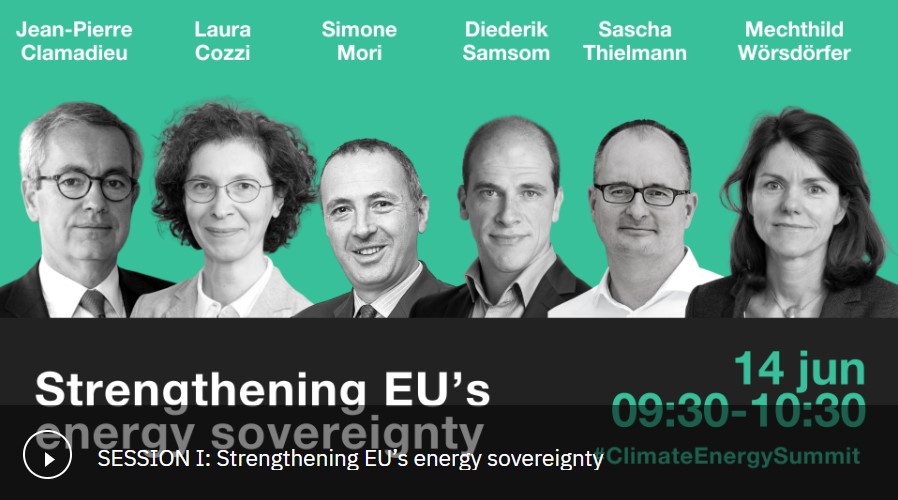Reports, videos and workshops
Should the EU respond to the energy crisis with greater solidarity?

On 14 June 2022, the think-tank Friends of Europe held its annual Climate and Energy Summit.
This year’s summit aimed to take the pulse of the climate crisis and energy transition, by focusing on how to strengthen EU’s energy sovereignty, the development of clean technologies and the role of sustainable finance in cutting down emissions.
What do our readers think?
Ahead of the summit, we recorded a video question from Marie following an online citizens’ panel we held in May 2022. She asked how the EU can respond to the energy crisis with greater solidarity.
To get a response to Marie’s question, we put this comment Mechthild Wörsdörfer, Deputy Director-General for Energy at the European Commission. You can see her answer in the video at the top of this post.
We also had a question from Kostian, who asked: “In the short term, how challenging will it be for the EU to create the right conditions for climate innovation through technology?”
To get a response, we put Kostian’s question to Ann Mettler, Vice President, Europe at Breakthrough Energy. What would she say?
💬 “I am just back from the United States, where I spoke to several CleanTech investors, entrepreneurs, and what I heard was, actually, that Europe is quite well positioned. There is a lot of interest in what Europe is doing. It is perceived that Europe has many opportunities and that is, of course, wonderful. However, anyone who knows me also knows that I would caution and say that this is not a time to be complacent. And if I look at Europe, there are 3 shortcomings that need to be addressed:
Firstly, from the policy perspective: it is so important to look at the entire innovation cycle. From the early-stage R&D to the last-stage deployment and commercialisation. I am not at all concerned that Europe is doing well in the early stages of the innovation cycle. We do very well in R&D, there is exciting research going on. However, I do have very grave concerns about the later stages of the innovation cycle, so when it comes to really creating the sizeable markets. That is where Europe has room for improvement.
Secondly, climate innovation or clean tech innovation is genuinely difficult. Because so many of the ultimate products are very undifferentiated. So, if you use green cement vs carbon intensive cement, there is not going to be a palpable difference, it is the same for green steel, low carbon fertilizers, sustainable fuels… There won’t be a huge difference. This is why price matters so much. We need to bring down the green premium, so that these technologies become cost competitive, because that is when they will become used. We can’t just let the market play this out, because that will take decades. This is why policy interventions such as carbon contracts for difference, are so important. So we really need to think this through.
Thirdly, clean tech innovation really requires a massive amount of investment. To give you an example: McKinsey estimates that decarbonising the steel sector will cost $145 billion per year for the next 30 years. So we really need new, blended finance instruments, like low cost equity, concessionary finance, but also we believe that philanthropic capital comes into play to de-risk these projects so that they can accelerate these innovations and bring them to the market faster.“
Should the EU respond to the energy crisis with greater solidarity?
How can Europe achieve energy sovereignty? How can this transition be financed fairly and effectively?
Funded by the European Union. Views and opinions expressed are however those of the author(s) only and do not necessarily reflect those of the European Union or the European Commission. Neither the European Union nor the granting authority can be held responsible for them.![]()
